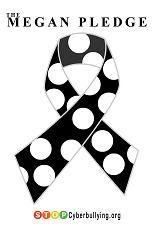Quick Guide for Parents for the Day After Diagnosis:
(The
Day Of Diagnosis, just go home and enjoy your child. Maybe put a fresh pot of
coffee on, or take up drinking coffee.)
1. Here are the people to call:
*Local
Autism clinic, if you didn't get get the diagnosis there. Here, that would
both Kluge Children's Rehab and Kennedy Krieger. Some centers, like Kennedy
Krieger, take a year to get an appointment for anything. Kluge takes a couple
of months. A year is a little long, but a couple of months is OK. This is
urgent, but not an emergency. Besides, you have other folks to call and get
going.
*The local school district. Many of teh supports your child
needs are the responsibility of your local school district. You want to get a
feel for the place, have an eval, get into the system- even if you decide to
homeschool.
*Your insurance. KNow what they will cover, and what
they will not. Many insurances will cover OT without batting an eye, but will
not cover speech therapy because it is "educational." Some insurance
see "autism" and cover NOTHING. Some see it and cover EVERYTHING.
Some therapies are considered educational and not medical- and this can be
different from insurance to insurance, state to state. You may choose
interventions that are not covered, and you need to know what you will be
paying for, how much it will be, and what you will need to do to cover
it.
*The speech pathologist. Some centers have them, some local
hospitals have them, and there are lots of private practice ones. Be sure they
are going to work on communication, not just speech. Do they do sign language,
switches, PECS? How do they use these as tools for communication, and not just
learning to speak? How do they use them to encourage- but not force- speech? Do
they also work with reading and other visual communication?
*The
physical therapist. Many autistic kids have gross motor problems that
need to be addressed. Many don't need a PT (Joey doesn't need a PT).
*The
occupational therapist. Ask specifically about sensory integration
therapies. Most autistic kids have some form of SPD (though not all!). You
don't want just a buttons and zippers OT, you want one that will take an
integrated approach and can address the needs of your child.
*Your
pediatrician. Be sure they are immediately aware. Ask questions. What
will they do for you? What do they know abotu autism? Are they willing to do
some research or attend a conference or workshop about autism? If you have a
doctor who seems ignorant of autism- and many are- and is
unwiling to beome educated, then you will be needing a new ped.
*Psychologist. You may
need some testing done in ways the school doesn't accomodate, some
understanding of your child's mental health, and yes, you may need medications.
Be prepared.
*Your local Disability Resource Center. These
types of organizations can help you navigate local resources, prepare for
things like Medicaid Waivers, even help you understand disability law and
rights. They can also help you network with other parents of disabled
children.
*State agencies for the disabled. Many
states have offices specifically geared to helping people with disabilities and
protect their rights. Its a good idea to be familiar with these offices and
what they actually do in your state or locality.
*A Lawyer. You're about to
become an expert in disability law. School districts and insurance agencies can
be not fun to work with. Be prepared. Find a lawyer and advocate who deal in
disability and educational law. BE prepared in case you run into problems- its
a lot easier to prepare for a fight if you already have your champion lined up,
rather than waiting until you have a problem. I haven't met a parent yet who
didn't have a problem.
I know that is a lot of phone calls. Prepare
ahead of time- get a big loose-leaf notebook to keep paperwork, evaluations,
even phone messages in. Just keep it by date; when you make a call, note it on
a sheet with the date and a summary of what was discussed, and put it in the
notebook. When the evals come, just put them in the notebook. Bills. Letters.
IEPs. Anything. I even have Joey's birth certificate at the front. I'm on our
second 3" binder.
2. Here are things you need to do:
*Relax. Your child
hasn't changed. You just have a new label to point you to resources you might
need.
*
Read. The books I recommend are:
That will give
you a start. I encourage folks to include their favorite resources in the
comments.
*Read some more. You will need to research
different methods and strategies used with autistic children. Some I can think
off the top of my head are ABA (Applied Behavioral Analysis), PECS (Picture
Exchange Communication System), Floor Time, Sensory Integration, Therapeutic
Listening, GFCF (Gluten free/Casein free diets) {and other possible allergies
and diets- if your kid has sensory issues, allergies can drive them crazy!], ABLLS
(Asessment of Basic Language and Learning Skills), TEACCH (Treatment and
Education of Autistic and related Communication-disabled[or handicapped]
Children).
*
Get online. Check out the links I have in the
sidebar. I've developed a handout for new parents here in Virginia, I'll be
happy to email it to you. Also, you can network with more great folks like us.
:)
*Go out and have some fun! Remember, your child hasn't
changed! Go out and do the stuff your child likes to do! Try to introduce your
child to new experiences- as you would any child! These outings may take more
preparation(and work) than for non-autistic families, but it's worth it.
Keeping kids locked in the house will drive you crazy, too, and deny them
living. Yes, some folks will stare. You may get unkind comments, or offensive
comments. But you know what? You would have gotten them even if you didn't know
about autism. Now you know how to support your child in the face of these
people- "My kid's doing a great job with this new experience. What's your problem?"
Summary?
You now know your child is autistic. Now you have a better plan for moving
ahead and educating your child- which now makes your life better, not worse.
Yes, now that you know the kinds of resources you need, you now have work to do
to tap those resources- but now you have narrowed the field to the resources
you may need!
See? Not scary. Just needs a little information!




















No comments:
Post a Comment